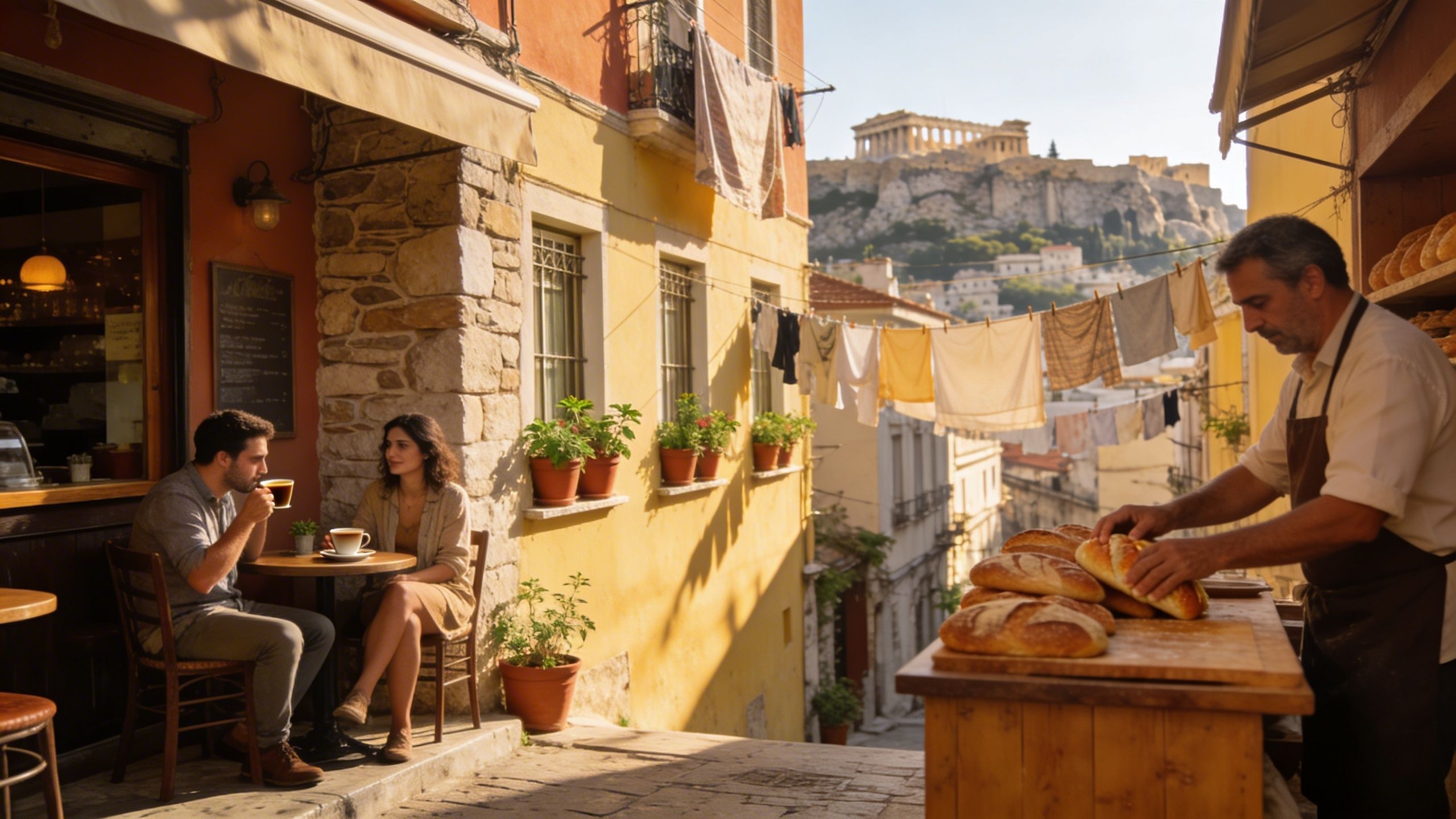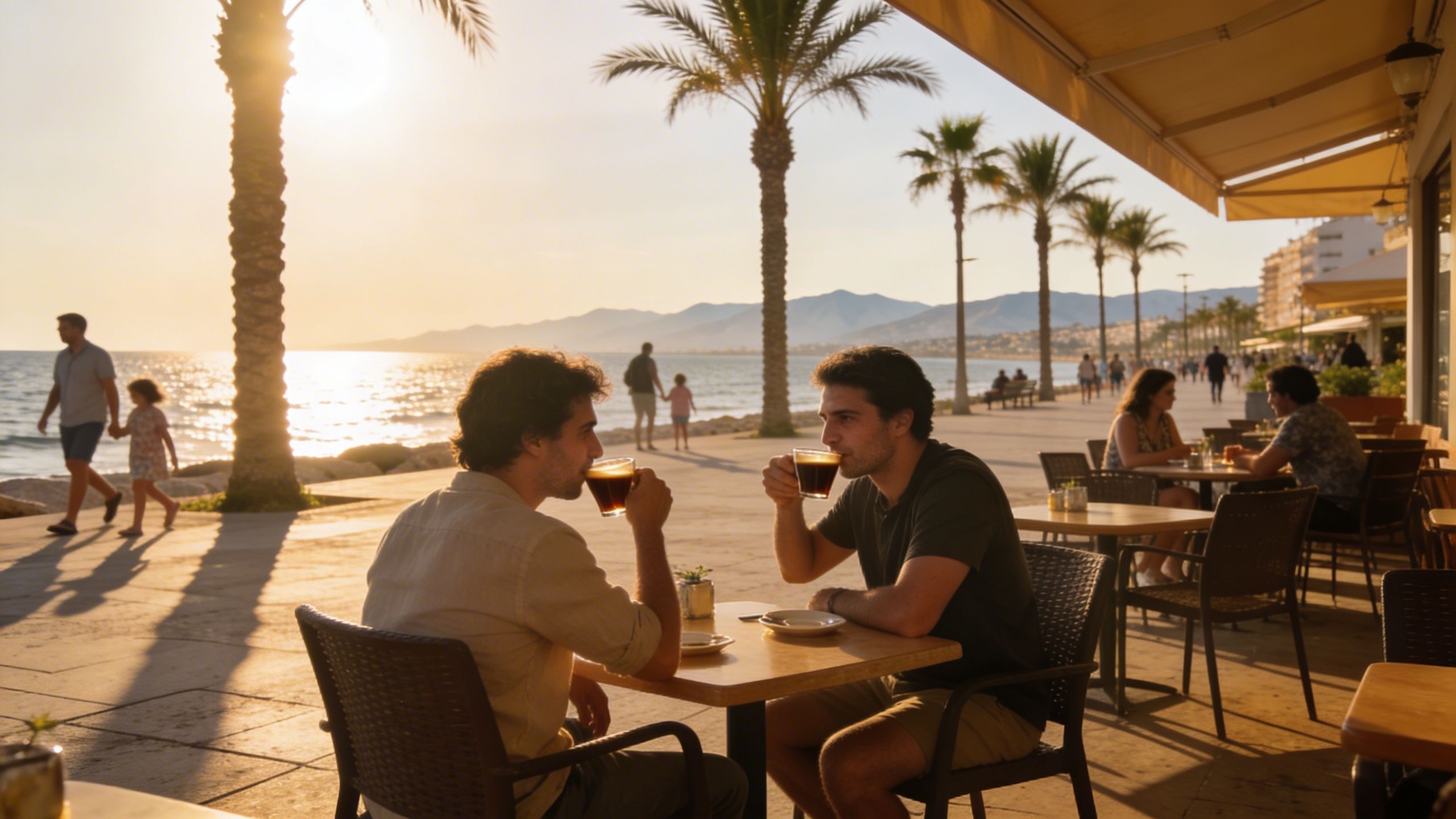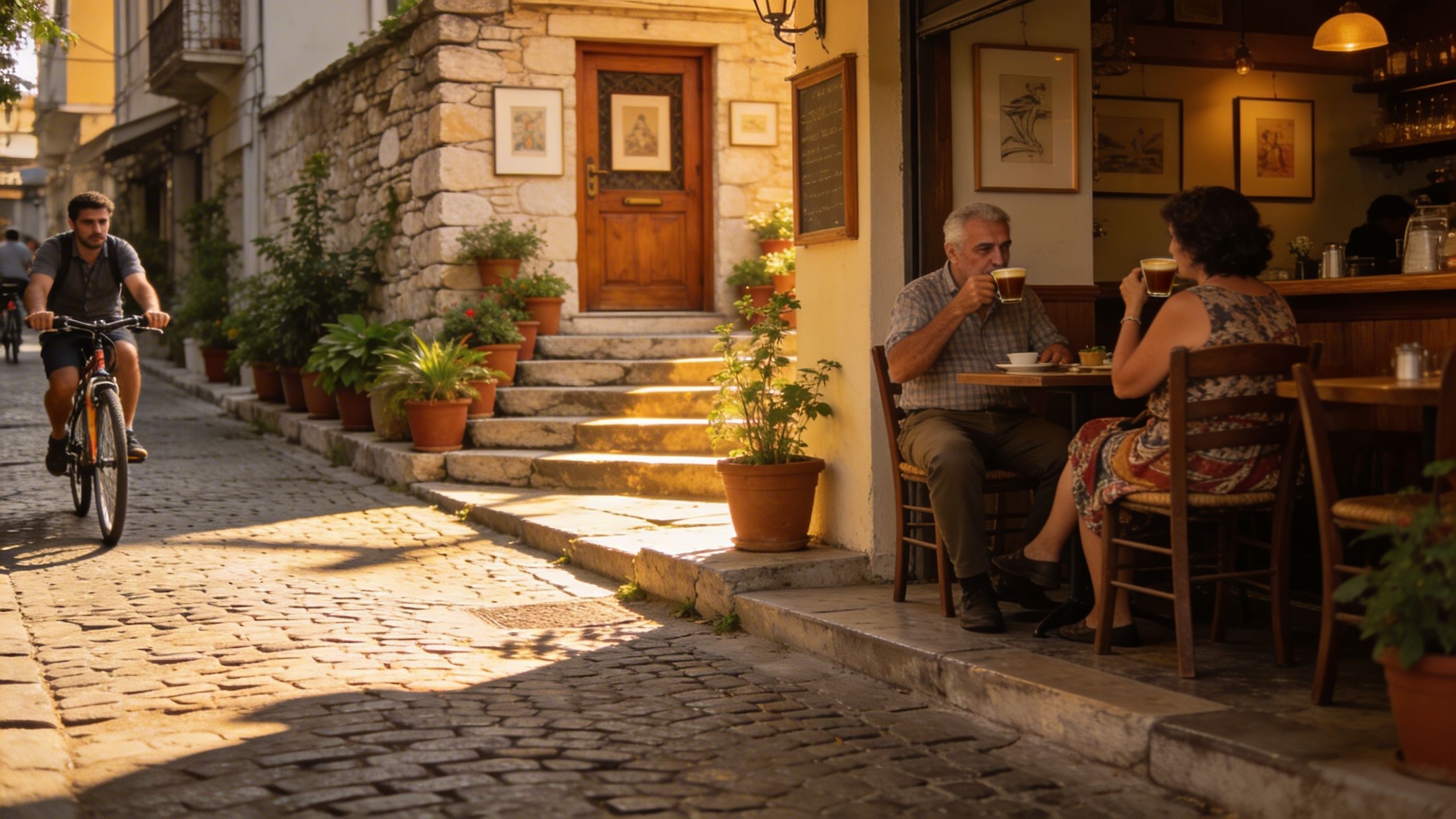Greece: Seasons, Stewardship & The New Realities
Fall in love with Greece’s seasons and neighbourhoods — then buy with eyes wide open: new residency rules, rising prices and eco‑retrofit choices shape where and when to purchase.
Imagine stepping out for a morning espresso on a cobbled street in Plaka, Athens — jasmine scent in the air, fishermen hauling nets in the distant harbor, and the conversation of neighbours blending with church bells. That ease of daily rhythm is what draws many of us to Greece: a life framed by sea, stone and seasons. But the dream and the paperwork arrive together; the country’s market, residency rules and regional price differences matter as much as the light on the hills. This piece blends the sensory — taverna evenings on Naxos, Thessaloniki cafés alive with students — with the practical, so you can begin an eco-conscious, considered property search here.
Living Greek Days: light, rhythm and neighbourhood character
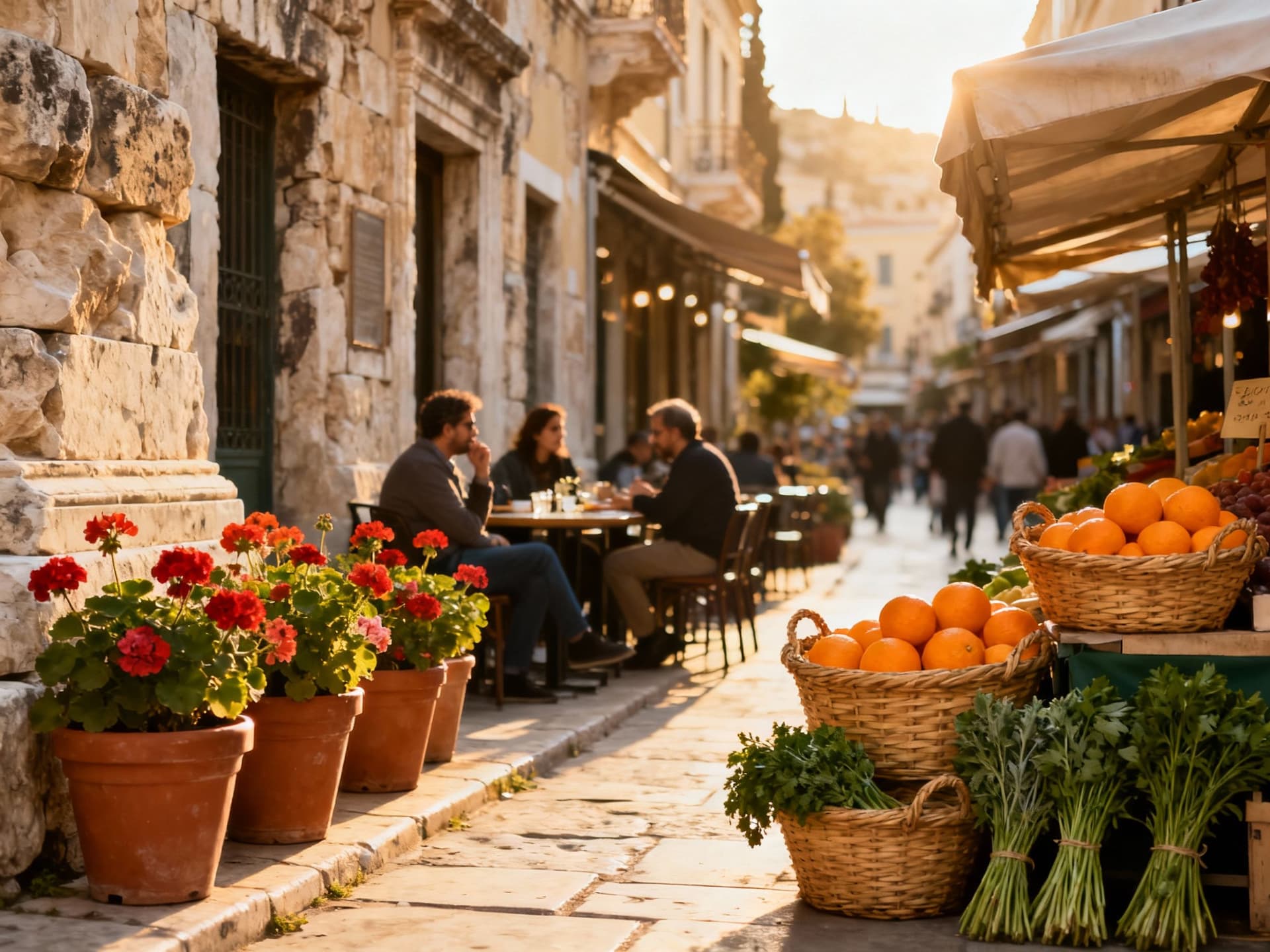
Greece moves at a kindly tempo that changes with the map. Athens hums differently from Chania’s Venetian quay, and the Cyclades’ dry, wind‑sculpted silence is a different kind of luxury. When you picture life here, think of seasons as the organiser: spring markets, slow summer afternoons by pebble beaches, and autumn olive harvests that pulse through villages. These rhythms shape what kind of property fits you — a compact stone maisonette in an island alley for social summers, or a thermally efficient villa on Crete that tucks into winter sunlight.
Athenian neighbourhoods: city life with a courtyard heart
Walk from Exarchia’s tree‑lined squares to Koukaki’s terraces and you’ll notice how courtyards and communal life anchor Athenian neighbourhoods. Kifissia offers leafy streets and long café mornings, while Psyri and Monastiraki give you a patchwork of tavernas and weekend markets. For eco-minded buyers, look for buildings with south‑facing balconies, heritage stone that lends thermal mass, and neighbourhoods with active farmers’ markets — they tell you a place where local supply chains still hum. Local examples to visit: Koukaki’s rooftop bars, the food stalls at Varvakios Market, and the shaded lanes of Anafiotika.
Island life beyond the postcard: community and seasonality
The Cyclades and Ionian islands are often sold as summer fantasies, but their character is seasonal and community-driven. In Paxos you’ll buy into olive groves and quiet winters; on Naxos you’ll find small producers and a year‑round village life; on Lesvos and Evia communities centre around fishing ports and working harbours. That seasonality affects services, school choices and running costs — and it’s why many ecologically-minded buyers prefer islands with functioning winter communities rather than purely tourist economies.
- Morning markets, taverna rituals, beaches with local names (Agios Prokopios, Elia), small‑scale vineyards, olive‑press festivals, neighbourhood cafés where owners know your order
Making the move: practical realities that still smell of thyme
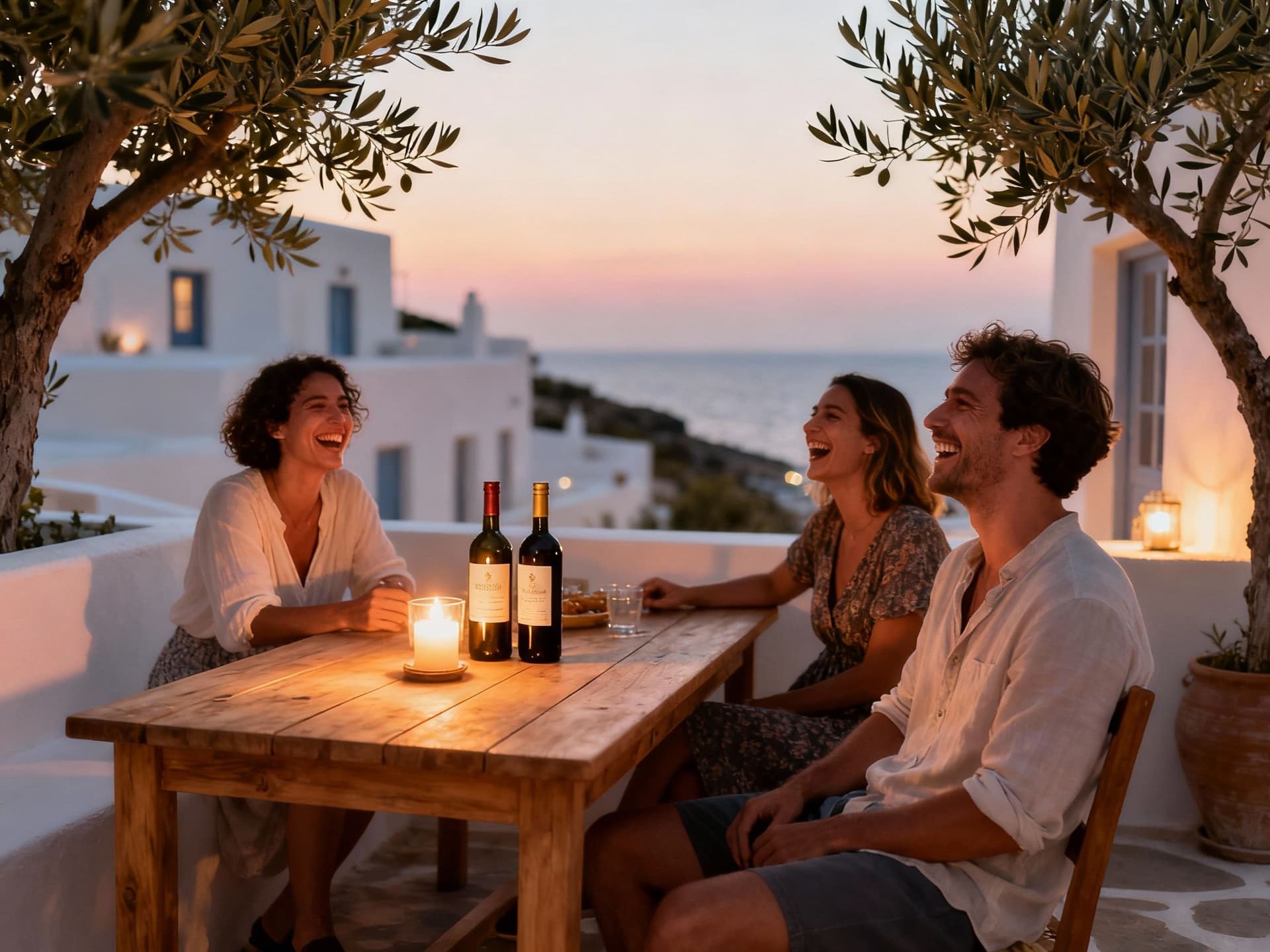
Your property search should begin with lifestyle imagination and then fold in a few hard realities. Recent legal changes affect residency‑by‑investment thresholds and region definitions, so where you buy can change your visa options and tax picture. Prices have been rising in 2024–25 in many urban and island hotspots, driven by foreign demand and constrained supply, which changes the timing and the negotiation landscape. A local lawyer and a sustainability‑aware agent can keep your search focused on places that match both your values and the new rules.
Property styles: stone maisonettes, modern eco‑renovations and coastal villas
Traditional stone homes offer breathable walls and cool summers, but often need careful retrofitting for insulation and rainwater management. New builds can deliver solar readiness, heat‑pump friendly layouts and greywater systems — desirable for buyers seeking low running costs and low impact. Consider how each typology supports the lifestyle you want: courtyard houses for garden living, terraced apartments for neighbourhood life, or small plots with olive trees for a regenerative garden project. Ask sellers for EPC‑style energy assessments or for recent upgrades (insulation, PV, thermal glazing) to compare real running costs.
How local experts protect the life you’re buying
- Hire an agent who knows both life and law. They’ll show you neighbourhood routines (school runs, market days), point out microclimates and explain building typologies that age gracefully. A local lawyer checks titles and permits; an architect or eco‑consultant can estimate retrofit costs for insulation, PV and water systems. Together they reduce surprises and keep your purchase aligned with a sustainable life rather than a short‑term trend.
Insider knowledge: what expats wish they’d known
Real talk from those who moved here: plan for winter, learn a few phrases, and build neighbourly goodwill — these are as important as contracts. Many buyers underestimated small line items (seasonal heating, irrigation, community fees) and overestimated year‑round tourist income. Recent industry surveys show foreign buyers remain a strong presence in hotspots, which keeps competition high but also supports local services when handled respectfully. Understanding how the market is shifting helps you buy with patience and ecological care.
Cultural notes: language, hospitality and slow timelines
Greek social life circles around shared meals, small favours and patience — bureaucracy often takes longer than you expect, and a personal introduction goes a long way. Learn basic Greek phrases, join a local market day and attend a village panigiri (festival) to feel welcomed. These social ties also unlock access to renovation craftsmen, rare plots, and off‑market opportunities that respect local heritage and ecology.
- Red flags and green flags when you visit a property: unclear title deeds, no building permits, communal water issues (red); evidence of recent energy upgrades, mature shade trees, proximity to local markets (green).
In five years you’ll judge a purchase by how it supports daily life — morning walks, neighbourly invitations, seasonal produce and low‑stress maintenance — not just by annual returns. Properties that respect local materials, keep terraces shaded, and include basic renewables age better both in price and in joy. If you want help matching lifestyle to legal certainty, our network brings together lawyers, eco‑architects and agents who care about place as much as profit.
Swedish advisor who left Stockholm for the Costa Brava in 2019. Specializes in sustainable, sea‑view homes for Scandinavian buyers and green finance insights.
